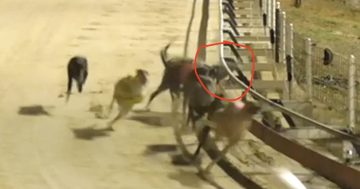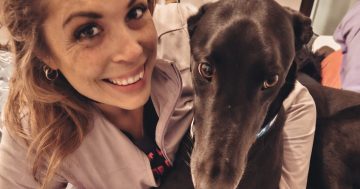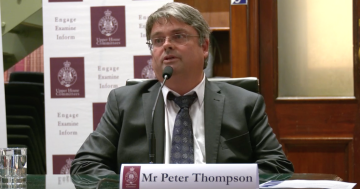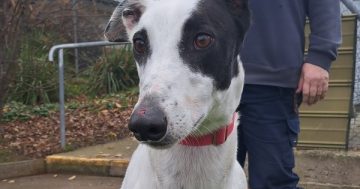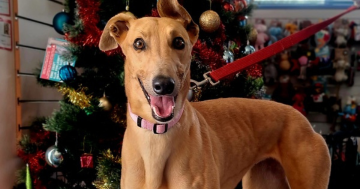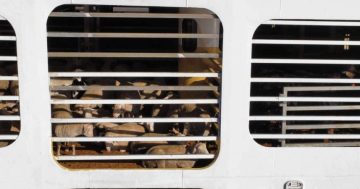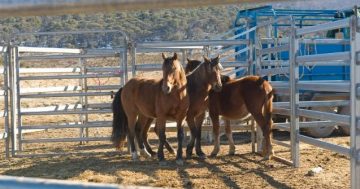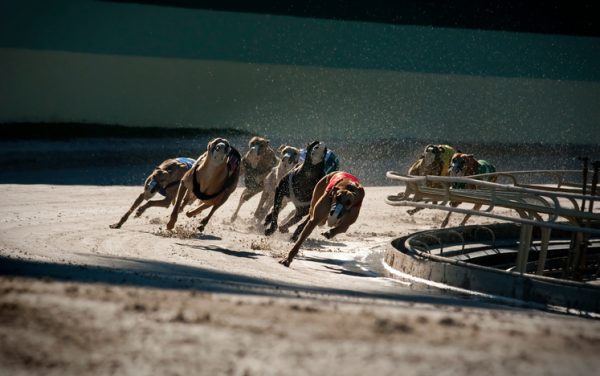
The ACT Government will ban greyhound racing and trialling in the ACT by 30 June 2018, ACT Attorney-General Gordon Ramsay announced this morning.
“There is no future for the greyhound industry in the ACT,” the Attorney-General said as he released an independent report by Territory’s former Health Services Commissioner Mary Durkin into transition options for the greyhound racing industry.
“As the Durkin report states, the greyhound industries in NSW and the ACT are inextricably linked.
“We cannot turn a blind eye to the sort of behaviour and animal cruelty uncovered in NSW. Nor can we ignore the impact of regulatory failure in relation to those matters in that jurisdiction. While we have strong animal welfare controls in the ACT, it is impossible to divorce the local greyhound industry from the NSW industry and it is impossible to separate the local regulatory framework from the NSW framework.
“The prospect of those behaviours coming into the ACT, and the risk of regulatory failure in NSW, presents an unacceptable risk.”
According to Mr Ramsay, over the past five years of greyhound racing in the ACT, more than 320 dogs sustained minor to catastrophic injuries during a race. 26 dogs were destroyed at the track on the day of racing.
See our live report of this morning’s announcement here:
“And, the Durkin report states, injury rates and the later destruction of dogs do not always appear in the data made available to the public,” he said.
“Most people in our community find this unacceptable and are greatly concerned about the treatment of greyhounds.”
Animal welfare issues in relation to greyhound racing, including the practice of live baiting, were highlighted in an episode of Four Corners on the ABC in February 2015. The public outcry that followed led to a NSW Government-established inquiry into the sector and then an announcement that the state government would ban greyhound racing there, though this decision was eventually reversed.
In addition to exposing more details of widespread live baiting, the NSW inquiry found that tens of thousands of healthy greyhounds had died unnecessarily as a result of industry practices and attitudes, and that the industry had deceived the community about the extent of injuries (ranging from minor to catastrophic) caused during race meetings.
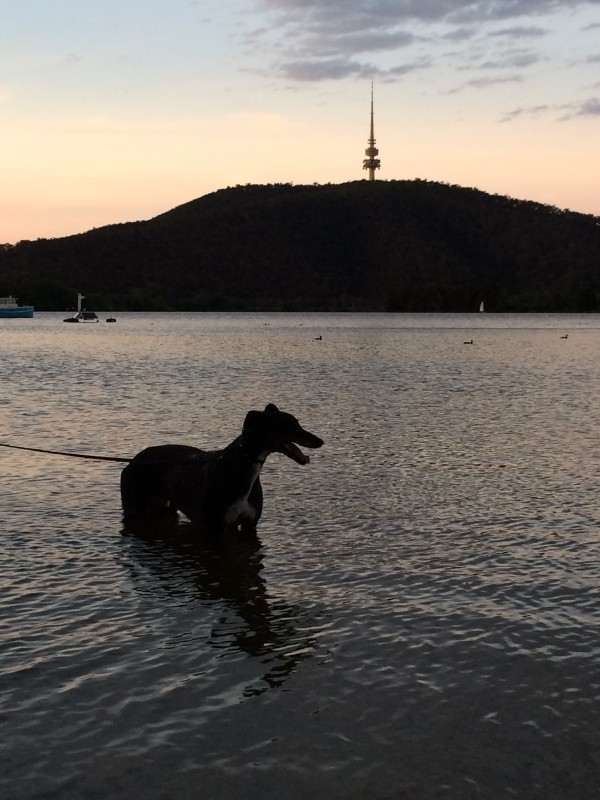
The ACT Government will provide more than $1 million to assist workers to re-skill and to ensure the welfare of greyhounds, including those who may need to be re-homed.
Some 71 dogs that were ACT-based participated in greyhound racing in the Territory in 2016.
“The ACT industry is small with around 70 Canberra residents who are owners, breeders or trainers along with a small number of workers and contractors associated with the Canberra Greyhound Racing Club,” Mr Ramsay said.
He noted that Labor had made a commitment prior to the last election to ending the industry in the ACT. The Greens also supported a ban.
An industry transition taskforce (www.act.gov.au/greyhoundtaskforce) chaired by Deputy Director-General of the Chief Minister, Treasury and Economic Development Directorate Leesa Croke will include representatives from across the ACT Government.
Mr Ramsay encouraged greyhound industry participants to contact the taskforce via greyhoundtaskforce@act.gov.au.
“I will make a further announcement regarding the transitional assistance package before the end of July,” he added.
The Attorney-General had not spoken to representatives of the greyhound industry this morning but would be discussing the timeline for shutting down racing here with them later today.
ACT Greens MLA Caroline Le Couteur said her party was thrilled at the Government’s decision to ban greyhound racing here.
“This is a fantastic outcome, as is the recent ending of the exorbitant $1 million subsidy to support the greyhound racing industry,” Ms Le Couteur said.
“The ACT Greens have long argued for an end to this exploitative industry – by focusing on the welfare of the dogs and supporting the ACT workers to transition. For too long, the industry has been allowed to get away with cruel animal practices, including the unnecessary slaughter of animals deemed ‘unsuitable for racing’.
“While we recognise that this process will be a difficult one for some people, we support the recommendations to work with individuals to help them retrain or find employment in other industries.”
She said the Greens would encourage the ACT Government to work closely with local animal welfare groups as part of the transition, particularly once it was confirmed how many greyhounds would need to be re-homed.
The Greens would also continue to work with the Government to ensure strict animal welfare standards were in place for any trainers and breeders who continued to operate in the ACT.












